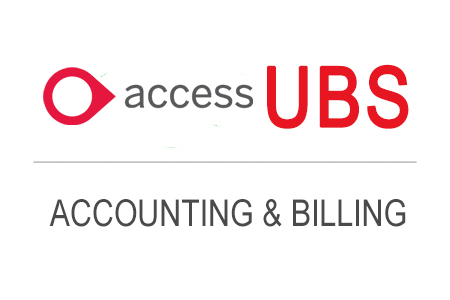
Analysing the Balance: Pros and Cons of UBS Accounting Software
In the realm of financial management, UBS Accounting Software has carved a niche as a comprehensive solution for businesses seeking efficient tools to handle their accounting needs. As organizations consider the adoption of UBS Accounting Software, it is crucial to evaluate both the advantages and potential drawbacks. This article delves into the pros and cons of UBS Accounting Software, shedding light on how it impacts financial operations and aiding organizations in making informed decisions about its suitability for their requirements.
Pros of UBS Accounting Software
User-Friendly Interface
UBS accounting software is renowned for its user-friendly interface, making it accessible for individuals with varying levels of accounting expertise. The intuitive design streamlines navigation and facilitates efficient usage, ensuring that users can adapt quickly to the software, regardless of their technical background.
Comprehensive Financial Management
UBS Accounting Software offers a comprehensive suite of features for financial management. From general ledger and accounts payable to accounts receivable and payroll processing, the software covers a wide range of accounting functions. This all-encompassing approach allows businesses to manage various financial aspects within a single platform, promoting efficiency and accuracy.
Scalability for Business Growth
UBS Accounting Software is designed to scale with the growth of businesses. Whether an organization is a small startup or a large enterprise, the software accommodates evolving needs, increased transaction volumes, and expanding financial complexities. This scalability ensures that businesses can continue to rely on UBS Accounting Software as they grow.
Real-Time Financial Insights
The software provides real-time financial insights, enabling businesses to monitor their financial status on an ongoing basis. Real-time updates facilitate quick decision-making, allowing organizations to respond promptly to changes in their financial landscape. This feature is particularly valuable in a dynamic business environment where timely decisions can be a competitive advantage.
Customization Options
UBS Accounting Software offers customization options, allowing businesses to tailor the software to their specific needs. Customizable features include chart of accounts, financial reports, and invoice templates. This flexibility ensures that businesses can adapt the software to align with industry standards, regulatory requirements, and unique reporting preferences.
Integrated Modules
The software incorporates integrated modules for various financial functions, fostering seamless data flow between different components. Modules typically include accounts payable, accounts receivable, inventory management, and more. This integration eliminates data silos, reduces redundancy, and provides a unified view of the organization’s financial health.
Compliance with Regulatory Standards
UBS Accounting Software is designed to adhere to regulatory standards and accounting principles. This ensures that businesses can generate financial reports that comply with Generally Accepted Accounting Principles (GAAP) and other regulatory frameworks. Compliance with industry standards is crucial for accurate financial reporting and legal adherence.
Audit Trail Functionality
The software includes an audit trail functionality that tracks changes made to financial data. This feature is vital for accountability, internal auditing, and compliance requirements. The audit trail provides a detailed record of user actions, modifications, and historical data, contributing to the overall transparency of financial operations.
Cons of UBS Accounting Software
Cost of Implementation
The initial cost of implementing UBS Accounting Software can be a significant consideration for businesses, particularly for smaller organizations with limited budgets. The cost includes licensing fees, training expenses, and potentially additional costs for customization or integration with other systems.
Learning Curve for New Users
While UBS Accounting Software is designed to be user-friendly, there may still be a learning curve for new users, especially those without prior accounting software experience. Training sessions or tutorials may be required to familiarize users with the software’s features and functionalities.
Dependency on UBS Support
Businesses relying on UBS Accounting Software may face challenges in the event of limited support from UBS. Depending on the version and location, the level of customer support may vary. Businesses should consider the availability and responsiveness of UBS support services to address any issues or concerns.
Limited Advanced Reporting Capabilities
Some users may find the advanced reporting capabilities of UBS Accounting Software to be somewhat limited compared to more specialized reporting tools. While the software covers basic reporting needs, businesses with complex reporting requirements may need to explore additional solutions or rely on manual reporting processes.
Updates and Upgrades
The process of updates and upgrades can be a consideration for businesses using UBS Accounting Software. Ensuring that the software is up-to-date is crucial for accessing new features, security enhancements, and bug fixes. However, businesses need to manage the update process carefully to avoid potential disruptions in their operations.
Integration Challenges
While UBS Accounting Software offers integration capabilities, businesses may encounter challenges when integrating the software with other third-party systems or applications. Integration complexities can arise due to differences in data formats, protocols, or compatibility issues, requiring additional effort and resources.
Limited Cloud-Based Accessibility
UBS Accounting Software traditionally has limited cloud-based accessibility compared to some modern accounting solutions. Cloud-based accessibility is a growing trend in the industry, providing users with the flexibility to access their financial data from anywhere with an internet connection. The limitation in this area might impact businesses with remote or mobile work requirements.
Lack of Advanced Automation
While UBS Accounting Software includes essential automation features, it may not offer the same level of advanced automation as some other accounting solutions. Businesses looking for extensive automation, artificial intelligence, or machine learning capabilities may find the automation features of UBS Accounting Software to be more basic.
Conclusion
In conclusion, UBS Accounting Software presents a robust solution for businesses seeking a comprehensive and user-friendly platform for financial management. The software’s strengths lie in its scalability, real-time insights, customization options, and integrated modules. However, businesses need to carefully consider factors such as the initial cost of implementation, potential learning curves for users, and the level of support provided by UBS. By evaluating both the pros and cons, organizations can make informed decisions about whether UBS Accounting Software aligns with their unique requirements and contributes positively to their financial operations.
This article is posted on Gods Material.




Leave Your Comment